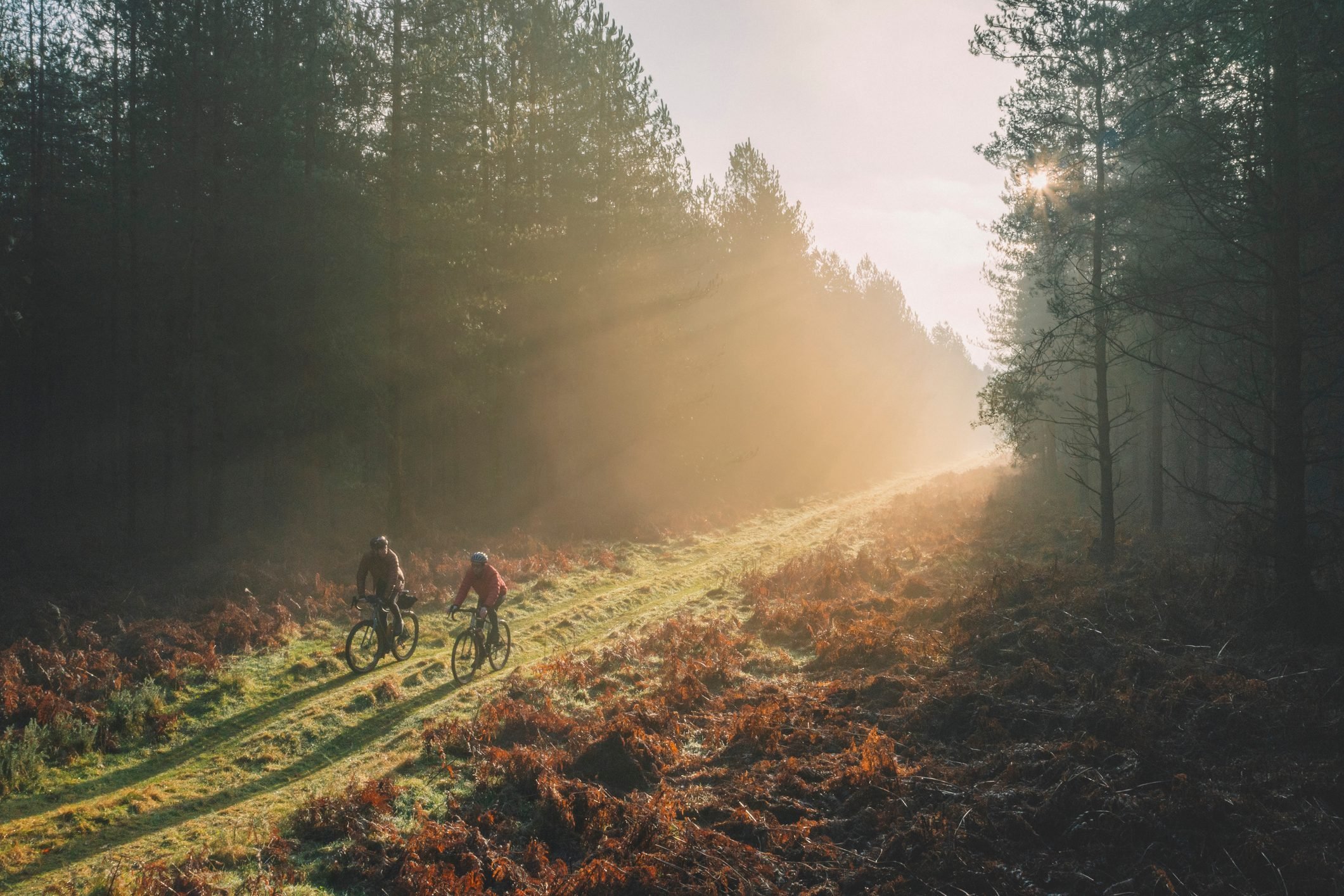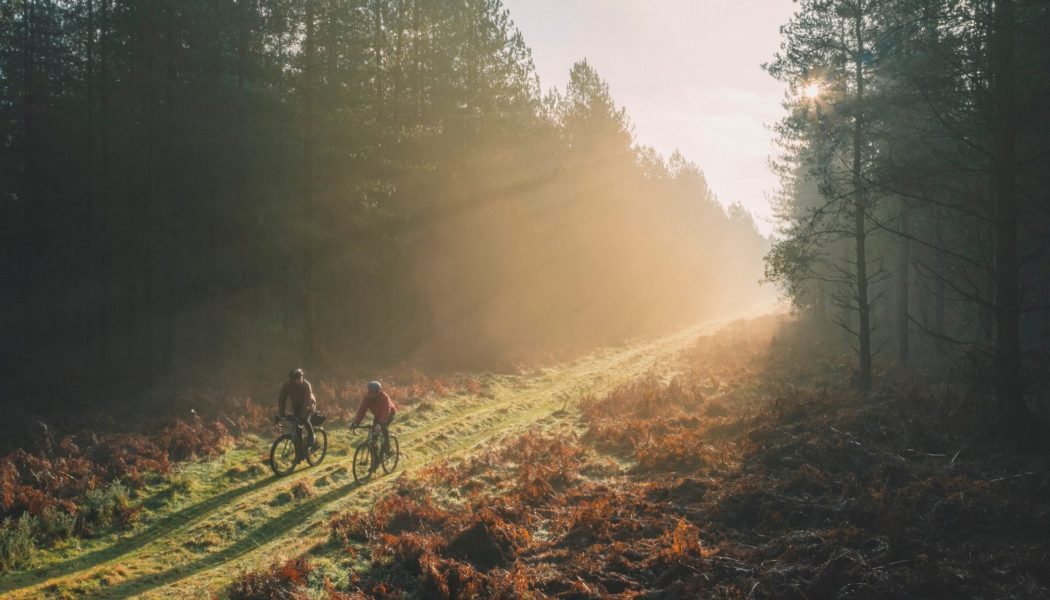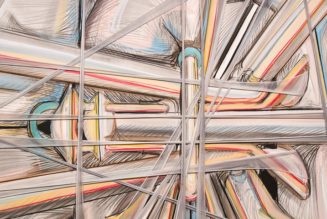
Americans are seriously burnt-out, according to a slew of recent polls. The American Psychological Association (APA) reports that 79% of people are experiencing high levels of burnout at their job, faced with pressures like productivity paranoia and the expectation to be constantly accessible. But it’s not just our work that’s dragging us down—we’re emotionally fatigued from online dating; we’re tired of the news and wading through misinformation; at least a third of us are struggling with basic decision making (AKA decision fatigue)—like what to wear, what to eat, or if we even feel like hanging out with friends. And United Way adds another budding exhaustion to the list. In a recent survey, 61% of people admit to having empathy fatigue, experiencing burnout to social justice issues they once cared about. In light of all this, a social movement has sprung up: the concept of a “slow living lifestyle.”
Google Trends found a 400% increase in views of slow living content from 2019 to 2020 alone. And in our post-pandemic world, mental health experts say the idea of slowing down your lifestyle is as important as ever for both your mental and physical health.
Ever Get the ‘Sunday Scaries’? Psychologists List 5 Reasons This ‘Anticipatory Anxiety’ Happens
What is a slow living lifestyle?
Today’s hectic pace of life has come to be considered “normal,” says Candace Kotkin-De Carvalho, a licensed social worker and clinical director at Absolute Awakenings. We’re always rushing around, trying to juggle responsibilities—and because everyone around us is doing the same, we feel the pressure to stay switched on to keep up.
Slow living is about taking a step back from this modern way of life and being more deliberate in how we spend our time, resisting the pressure of today’s fast-paced consumption, she explains. “[It’s] about creating meaningful connections with the people and environment around us, living a life without haste or worry, and taking time to appreciate small moments.” This approach encourages us to focus on self-care, rest, gratitude, being mindful of our actions and thoughts, and ultimately, gaining back a sense of control in our lives.
Why Everyone Should Take a Mental Health Day This Week
What are the benefits of slow living?
American society values a fast-paced, high-achieving lifestyle, says Daniel Wysocki, a board-certified psychologist with a private practice in Arkansas. But these hard-driving patterns that make us feel like we’re living on autopilot do not serve our mental or physical health whatsoever. (Don’t miss these 8 silent signs stress is making you sick.)
According to the US National Library of Medicine, chronic stress has been linked with a huge number of health issues, like high blood pressure, heart disease, gut problems, diabetes, obesity, skin problems, sleep issues, and mental health conditions like depression and anxiety.
Incorporating the idea of slow living into our lives means balancing work time, other obligations, recreation, and relaxation, Wysocki says. And with this balance-oriented mindset, we’re not just more likely to ease our stress (and the risk of its associated health conditions). This mindfulness approach to living creates space to make more conscious, healthier decisions about aspects of our day that benefit our health and well-being, like food choices, movement, and getting enough sleep.
4 Eating Habits That Are Damaging to Mental Health, a Dietitian Says
How to achieve a slow living lifestyle
Adopting a slow living lifestyle starts with recognizing that time is our most precious and limited resource, says Wysocki. There are no bonus points for stretching yourself so thin to the point of burnout—but at the same time, it can feel difficult to quit your fast-paced lifestyle cold turkey.
So part of embracing a slow living lifestyle is to… start slowly. “[There] isn’t a one-size-fits-all-approach,” Kotkin-De Carvalho says. “Slow living is about enjoying the journey, instead of rushing towards an end goal—take it easy and embrace life at whatever pace works for you.”
One good tactic? Start with slowing down for just 30-second chunks throughout your day, Wysocki says. “Turn away from your technology and deliberately slow down your movements, including your breath, and focus on the present moment.” He says a slow living lifestyle requires boundary-setting—and by practicing taking these tiny bits of personal time, you turn it into a habit. That’s where you can start identifying where you need set your limits and understand how to enforce them consistently.
As you learn to carve out more and more “you time” throughout your day, Lauren Cook-McKay, LMFT, a therapist at Divorce Answers recommends incorporating these simple habits to keep you on the path toward a slower living lifestyle:
- Mindful breathing to calm your mind and promote a sense of relaxation
- Spending time in nature, which is known to reduce stress and improve mental well-being
- Reducing screen time to connect to the present moment and break the habit of mindless distraction
- Slowing down while you’re eating meals to savor each bite and enjoy the experience
- Prioritizing self-care rituals by using your boundaries to do the things that make you feel great, like exercising, reading, stretching, cooking, or journaling
Now get started on your path toward slower living with these 23 tips for a truly restorative, stress-free weekend.
Popular Videos
Sources
People:
Candace Kotkin-De Carvalho, a licensed social worker and clinical director at Absolute Awakenings
Daniel Wysocki, a board-certified psychologist with a private practice in Arkansas
Lauren Cook-McKay, LMFT, a therapist at Divorce Answers
Websites:
American Psychological Association: “Burnout and stress are everywhere”
American Press Institute: “News and digital fatigue”
Singles Reports: “Four Out of Five Adults Experience Emotional Fatigue or Burnout From Online Dating (78.37%) – New Data Shows”
American Psychological Association: “High stress levels during the pandemic are making even everyday choices difficult to navigate”
United Way: “Surveying Americans on Empathy Burnout”
Think with Google: “‘Slow living’: The new fast-rising consumer trend”
US National Library of Medicine: “Stress and your health”









